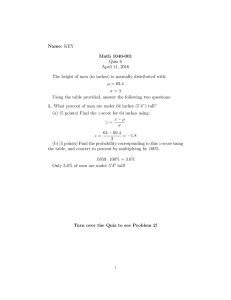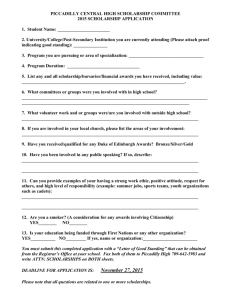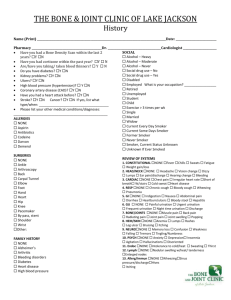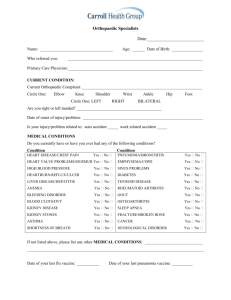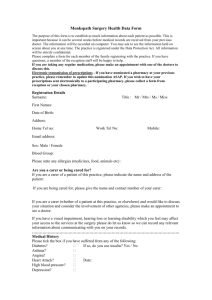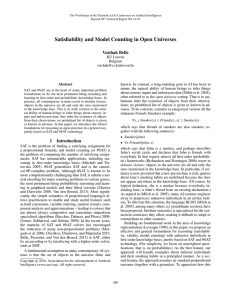Name: Math 1040 Midterm Examination Problem
advertisement
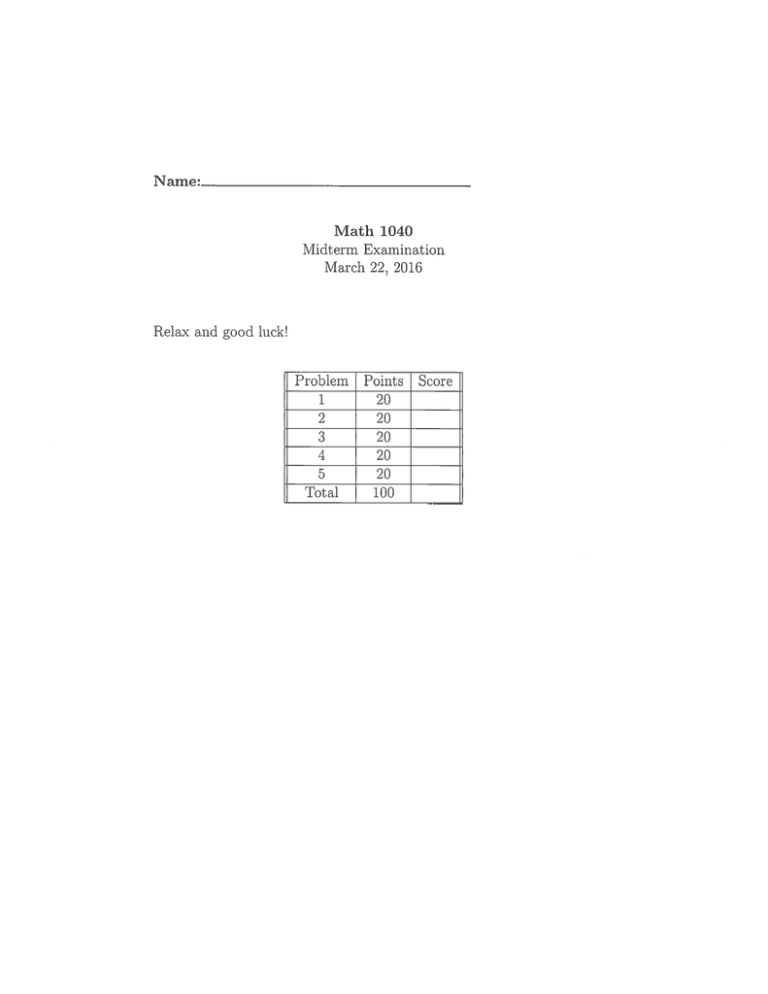
Name: Math 1040 Midterm Examination March 22, 2016 Relax and good luck! Problem 1 2 3 4 5 Total Points 20 20 20 20 20 100 Score 1. Consider the following speeds (in mph) of 20 cars on the freeway: 45 50 52 54 55(57 60 62 63 63J 63 65 65 65 65(68 69 71 75 80 (a) (10 points) Find the three qnartiles for the speeds: Q1= Q2= Q3= (b) (5 points) Draw a box-and-whisker plot for the data: (2 (c) (5 points) What percentile corresponds to the speed limit of 70 mph? = 70 mph Percentile 2. The table below gives means and standard deviations for the heights of populations of men and women: I Men’s Heights Mean 69.9 in Standard Deviation 3.0 in (a) (5 points) Find the z-score for a 5’ Women’s Heights 64.3 in 2.6 in (= 60 inches) tall man. (= 60 inches) tall woman. I — ci-- — (b) (5 points) Find the z-score for a 5’ ic-A (c) (5 points) How tall (or short) must a man be to be considered unusual? (Recall that unusual is a z-score of more than 2 or less than —2). .L>a i11 < qq— = (d) (5 points) How tall (or short) must a woman be to be considered unusual? X - ‘ > x< 3. Assume that the probability that a child is a girl is 1/2. For a family with four children, what is the probability that: (a) (5 points) All the children are girls? &‘i P1 L (b) (5 points) One or more of the children is a girl? I— - (c) (5 points) Exactly one of the children is a girl? (d) (5 points) Exactly two of the children are girls? /LQ/ff C— 1= 11 cutI 4. The following table is the result of a survey of a total of 100 men and women asking them whether they were smokers or non-smokers: Non-Smoker T T Male Female, 45 30 Smoker 15 10 (a) (3 points each) Find all the following empirical probabilities: P(Smoker) = art 7/Qf) (O/ P(Male) — — — = fry P(Male and Smoker) P(Male or Smoker) P(SmokerMa1e) /O?) = — = = W Li (b) (5 points) According to the table, is being a smoker independent of being male? Explain your answer. 1 — cf— J 4!i j€. 4 5. A scholarship committee has 3 awards to give to top students. They are considering 15 applicants, 5 of whom are majoring in mathematics. (a) (5 points) In how many different ways can they make the awards? i_s_ C 3’.2-j (b) (5 points) In how many different ways can they make the awards, so that none of them go to math majors? iO (c) (5 points) In how many different ways can they make them so that exactly one of them go to a math major? 10 r Ca (d) (5 points) If the awards are made at random, what is the probability that one or more of them go to a math major? I z. I C f)Q
